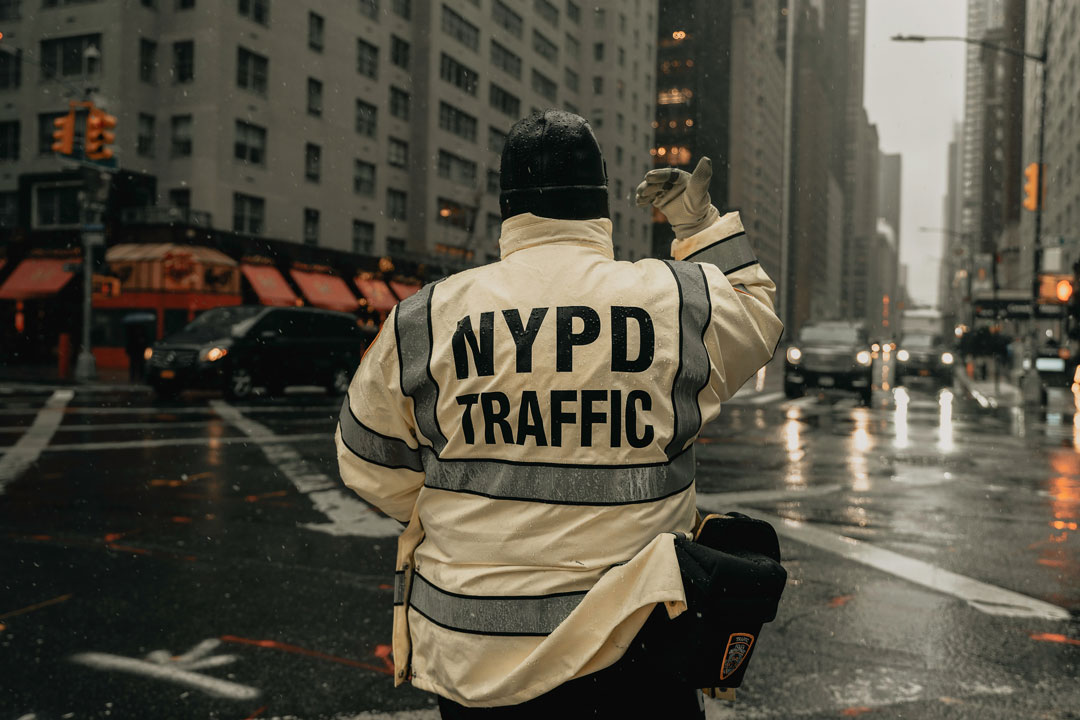Going on a little road trip while on vacation abroad is a great way to explore your destination. You can make as many stops as you like on the way, and see a lot more than by travelling by train or bus. You’re sightseeing on your own schedule.
But like anywhere else, driving is regulated by traffic laws and it’s important to get acquainted with the rules of the country you’re visiting, to avoid getting in trouble or paying ridiculously expensive and unexpected fines. The latter happened to me recently—I rented a car in Italy with my family and ended up paying hundreds of dollars in fines and administrative fees, months after my trip already ended.
I did some research online and was surprised to learn how many tourists find themselves in similar situations. So buckle up! I’m taking you on an international road trip to learn about some driving rules from around the world, so hopefully you won’t run into the same issues.

Driving rules from around the world
You should always be familiar with the driving rules and regulations at your destination. It usually means more than just checking the speed limits, or which side of the road you’ll be driving on, or if motorists there drive automatic or standard.
The first thing you’ll need to know is if the country you’re visiting requires tourists to have an International Driver’s Permit (IDP), which is basically a translated document of your current license back home. In some countries, it’s only recommended; in others, you can’t drive without one. You should also check the legal age to drive; it’ll vary from country to country.
Make sure you do this preliminary research before booking a rental car online, to avoid being hit with cancellation fees, if you realize too late you won’t be able to drive on your trip. Now, let’s look at some examples of how rules may differ from one country to the next.
North America
United States driving laws can differ from state to state. If you do a bit of research, you might come across some interesting restrictions: no gorillas allowed in the passenger seat in Massachusetts, no driving with a blindfold on in Alabama, no driving a black car in Denver on a Sunday, etc. All joking aside, you need to know which rules apply to the state(s) you’re visiting. If a police car signals you to pull over, proceed as soon as it’s safe to do so. Stay in your seat, keep your seat belt on, open the window on your side, and keep your hands visible on the wheels.
Also, brush up on your US road signs before taking the road, especially the dreaded American 4-way stop sign. And don’t forget that the speed limit signs are indicated in miles per hour, not kilometres.
Mexico has an extended system of toll roads called cuotas. The fee will vary depending on the length of your trip. If you’d rather take a free road, look out for signs that say ‘libre’. Although be aware that in some parts of the country, the toll roads are faster and most importantly, safer. Additionally, you should be aware of mordidas: an illegal bribe paid to police officials to let you carry on with your road trip. You’ll find many related stories online of tourists who’ve had to pay this infamous “fine”.
South America
In Argentina, the roads aren’t lit-up well at night, so it’s easy to miss the speed limit signs. Be careful as there are many strict speed checks in the country.
In Costa Rica, it’s legal to drink beer, in moderation, while driving. Keep in mind though that alcohol related claims might not be covered by your travel insurance, whether you’re driving or walking. Learn why travel insurance and alcohol don’t mix well.
Brazil, however, has one of the strictest laws when it comes to driving and drinking, with a blood alcohol concentration limit of 0.2 grams (for reference, it usually ranges from 0.4 to 0.8, depending on the country). This means one beer or glass of wine could get you above the tolerated limit. Also, it’s illegal to drive with flip-flops or run out of gas there, so keep an eye on the tank.

Europe
In Italy, some cities have Zona Traffico Limitato (ZTL), which are basically no-driving zones for tourists. They can be hard to spot, especially if you’re already struggling to find your way in the chaos of vespas rushing from all sides of the road. There are cameras installed in these zones that will capture your license plate. The police will then contact your car rental agency. You’ll be charged an administrative fee from the agency for dealing with the fine; then you’ll have to pay the actual fine.
I learned this the hard way. We were looking for parking one evening and unknowingly kept crossing the same ZTL—we were fined 5 times! This cost us nearly $1,000 in fines and administrative fees combined… It’s a lot more common than you think, based on what other travellers have shared online. My advice would be to avoid driving in Italian urban centres and pick a rental car situated on the outskirts of the city.
In Denmark, you must always check under your car before starting the engine as a precautionary measure, or you may get a warning or a fine if there’s police officer around the corner. May as well use this opportunity to get some exercise!
In Spain, if you’re wearing glasses, you must always have a spare pair in the vehicle. You may get a steep fine from the police if they do a random check otherwise.
In Germany, you can’t stop on the autobahn (highway) unless it’s an absolute emergency. And helping a fellow driver who ran out of gas or has a breakdown isn’t considered one.

In Iceland, the roads can be hazardous, so it’s recommended to drive safely. In fact, Icelanders even created a fun video to help tourists drive on their roads.
In Russia, it’s illegal to drive a dirty car. If you’re not sure how ‘dirty’ is dirty, give those windows an extra wash just in case!
European roads are usually older and narrower than the ones we’re used to driving on in Canada. There are also lots of roundabouts, so make sure you know the rules of priority to drive around these.
Asia
In China, you must have a Chinese license to drive, and be under 69. See how you can get a temporary Chinese driver’s license. If this doesn’t stop you from wanting to drive there, make sure to follow all the rules, one of them being: don’t let jaywalkers cross the road. In fact, you’re even encouraged to speed up to scare them off the road. You could get fined if you stop or even slow down.
In Japan, drivers are well-mannered – as you’d expect them to be – so much that you could be fined for splashing a pedestrian by accident while driving in a puddle!
In Thailand, the roads can be chaotic, especially in and around urban areas. Be extra cautious; some traffic signs may be hidden by vegetation. Make sure to equip your rental car with the best GPS system. Many locals have tinted windows to avoid direct confrontation with other drivers, which means you won’t be able to rely on body language to communicate with them. If you’re driving a two-wheel, keep in mind that motorcycles can’t go over bridges or under tunnels. Finally, keep in mind that as a tourist, you’re more likely to be pulled over by the police and that bribes aren’t uncommon.
In the Philippines, some shady car rental agencies will try to rent you a stolen car. Needless to say, you could get into serious legal trouble for driving one, even if you had no idea it was stolen. Also, in an effort to reduce traffic in congested areas, the government has put in place an unconventional rule: your license plate determines which days you can drive. For example, if your plate ends in a 1 or 2, you can’t drive on Mondays; on Tuesdays, it’s 3 or 4, and so on…
Driving rules vary from country to country, so make sure you respect them, even if the locals don’t. Remember, in many places, the police are far more likely to fine tourists for minor road infractions than locals.

What to do if you get caught or face fines
If you get pulled over by the police, stay calm and be courteous. Never assume you can get out of a problem by offering a bribe, regardless of where you’re travelling. You could end up in serious trouble for suggesting to pay off a police officer.
If you suspect a police officer is trying to extort money from you, you have 2 options:
- Pay upfront and make the problem go away. You never know how badly things could escalate if you refuse.
- Stand your ground, but remember, don’t go out of line; be polite and remain calm. Ask the officer if they’d mind if you accompany them to the police station to pay the “fine” there directly. If you are indeed being bribed, this could dissuade them from going any further.
Also, be aware that in some countries (like some US states), you must appear in court when you get a ticket, and you’re not supposed to leave the country until you’ve seen the judge.

Paying the fines
If you see unexpected charges on your credit card from the car rental company, call their customer service line right away and request a detailed invoice for the charges so you know what you’re dealing with. It’s very common for rental agencies to charge an administrative fee and/or a penalty when you’re being fined with their rental car. They might not be able to tell you exactly which law you broke, but they could tell you when and where you got caught by a traffic camera. In these situations, the fines usually come later. They may be charged directly from the credit card you used to rent the car, if the police choose to collect the money through the car rental agency, or they may contact you first.
Always compare the plate number on the ticket to make sure it matches the one on the car you rented. If it doesn’t, inform the car rental company that there may have made a mistake matching the plate number with your name. You should also contact your credit card provider to inform them of the unauthorized charges so they can start an investigation in case you don’t get a refund. If there hasn’t been an administrative mistake, the best thing to do is pay the fine right away. The longer you wait, the more this may cost you.
You might be thinking, what if I don’t pay? After all, you might never go back to that country again… Well, consider this: a refusal of payment could seriously impact your credit score, even if you cancelled the credit card you used for the car rental or if it expired. Also, if you do end up going back to the destination, the authorities might be waiting for you as soon as you go through customs.
You might also want to appeal the fine. While you might be successful, in most cases, you’ll probably end up spending more than you originally intended on legal and additional administrative fees. Especially if the appeal is debunked. Sometimes, the best thing to do is pay and let it go…
So, if you choose to drive abroad, be sure to understand the local rules first – and have fun!
Thomas Boudel Tan
